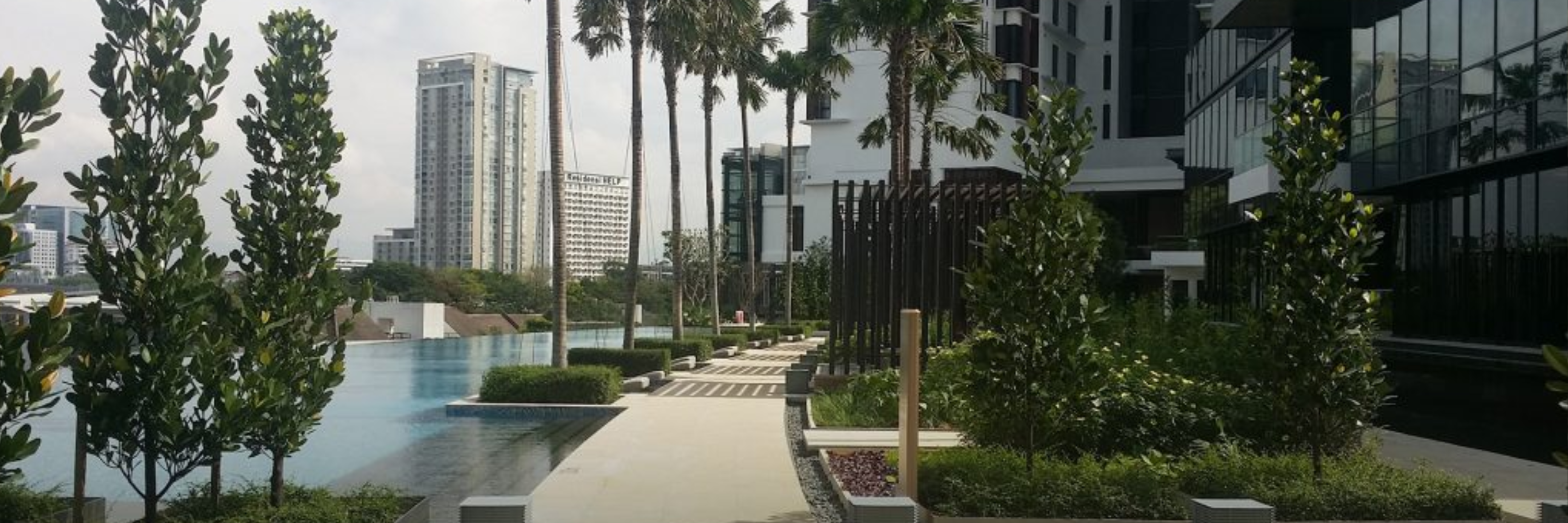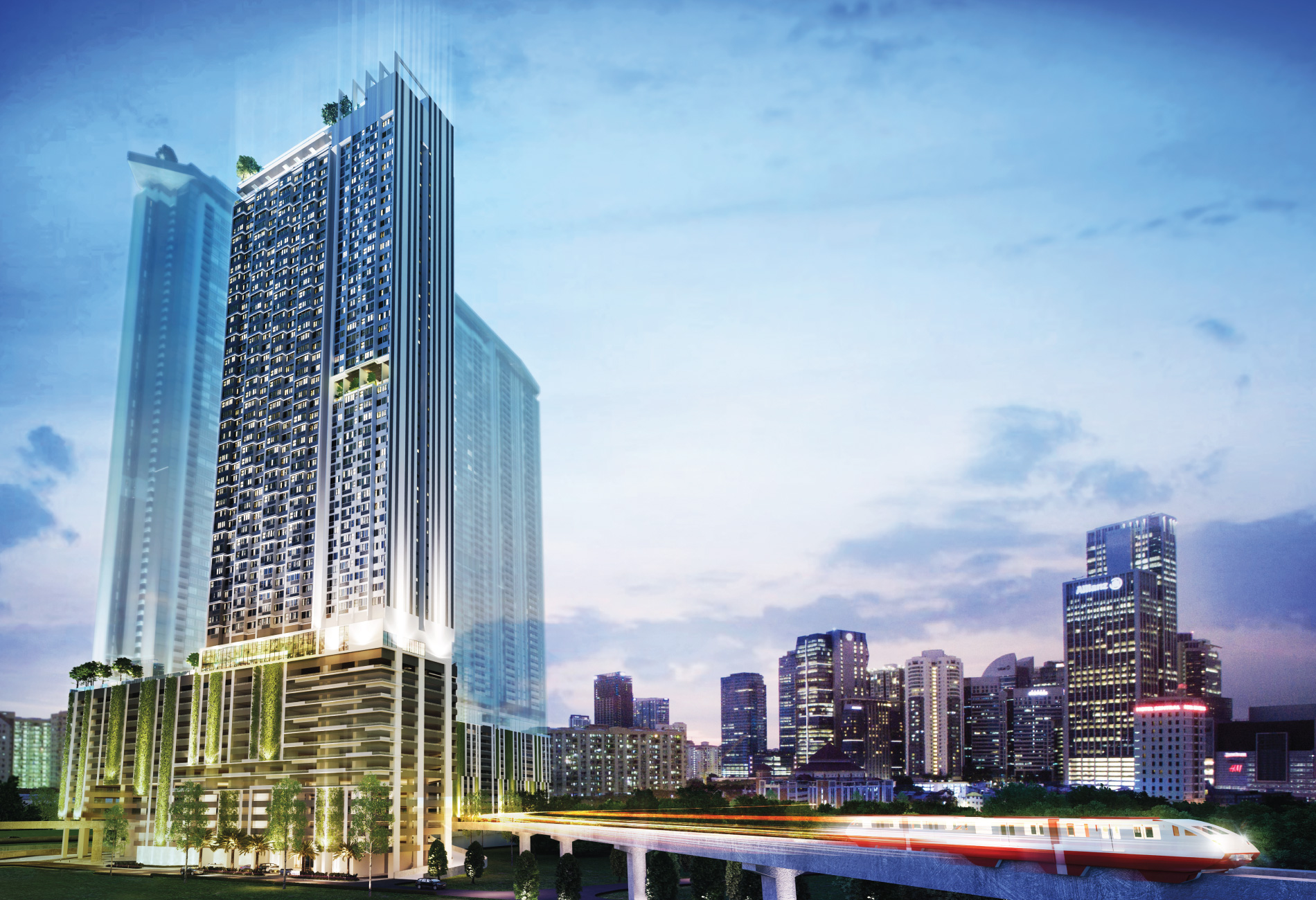When I first moved to Kuala Lumpur, I kept comparing everything to The Netherlands.
The rent, the weather, the cost of lunch, the size of my apartment.
In The Netherlands, I was paying more than €1,300 a month for a shoebox where my bed doubled as a sofa and my “garden” was a shared fire escape. In KL? For less than that, I was living in a high-rise with two bedrooms, a pool, a gym and actual sunlight. It was… humbling.
But once I settled in, the question popped up: should I just keep renting — or start looking to buy a place here?
It’s a big step, and the answer is not as obvious as it might seem. Especially when the Malaysian property market has its own unique rules that can surprise even the most experienced expat.
Renting in KL — Hassle-free and flexible
If you’re looking for speed, simplicity and minimal commitment, renting in Kuala Lumpur makes a lot of sense.
You’ll find everything from modern studios to family-sized condos in every part of the city. Most of them are fully furnished, managed by agents who speak English, and come with amenities you’d only dream of back home.
I moved in a week after arriving, with just a deposit and a one-year contract. The place had fibre internet, a gym I never used, and a view that made me feel like I’d made it.
Why renting is a solid move:
- You're not locked in — and that freedom is underrated.
- You can upgrade or move easily as your needs change.
- It keeps your cashflow light while you figure life out here.
- Maintenance issues? Call the landlord.
Also, if you want help finding a trustworthy place, I highly recommend speaking to [Link Christopher] — they’ve helped multiple expats (including me) find places without the usual runaround.

Buying in Malaysia — Legal, possible, but not always practical
Let’s be clear: foreigners are allowed to buy property in Malaysia. It’s not a legal maze like in some countries. But there are conditions — and some things you really need to understand before jumping in.
For one, in Kuala Lumpur, foreigners can only buy residential property that costs at least RM 1 million. This puts you straight into the high-end segment of the market — even if you don’t need or want something in that range.
But that’s just the beginning.
Here’s what makes buying tricky:
1. New buildings lose value — fast
Malaysia builds. A lot. Every few months, new luxury condos launch with better pools, fancier gyms, and more glass in the lobby than seems structurally necessary.
What this means is:
Today’s “high-end” quickly becomes tomorrow’s “kind of outdated”.
The resale market suffers because of this constant cycle. If you buy something brand new today, chances are there will be a shinier, cheaper alternative on the market before your warranty expires.
2. Older buildings are more stable — but less sexy
Ironically, the best property buys for expats are often units that are 10 to 15 years old. These have already gone through their depreciation phase, are often more spacious, and are located in more established neighbourhoods.
They might not have a virtual golf simulator or a rooftop jacuzzi — but they’ll likely hold their value better. Again, if you’re exploring that route, [Link Chritopher] knows which older buildings are actually worth looking at.
3. The market doesn’t behave like it does in Western Europe
Where I’m from, real estate feels like a one-way street: values climb year after year. But in KL, prices stagnate — or even decline — especially for newer properties.
That’s not necessarily a problem, unless you expect your purchase to be an investment. In many cases, you’ll lose money unless you hold for a long time — and even then, appreciation isn’t guaranteed.
4. Liquidity is slow
Selling property in KL can take months or even years. That’s especially true for higher-end units, where the pool of buyers is smaller. If you need to leave Malaysia suddenly, this could turn into a logistical and financial headache.
5. Ownership = full responsibility
No landlord to call when the plumbing bursts, and no one to negotiate with the condo management. You’ll be responsible for repairs, service charges, and whatever surprises tropical humidity decides to throw at your walls.
So what’s the smart move?
Unless you’re planning to be here long-term — and I mean 10+ years — renting is probably the more sensible option.
It keeps you flexible, limits your risk, and gives you breathing space to explore neighbourhoods, lifestyle, and job prospects before making a long-term commitment.
If you are considering buying, be strategic:
- Focus on older, stable buildings in strong locations.
- Work with a trustworthy agent who understands the expat perspective.
- Forget the idea that property here always goes up — it doesn’t.

Final thoughts
Kuala Lumpur is a brilliant place to live. The lifestyle, the food, the culture — it’s all here. But the property market? It’s a different beast.
Renting is often the wiser choice — at least until you truly understand the landscape. And if you do decide to buy, go in with clear eyes and local guidance.
Still unsure what fits your situation? Just drop us a message — or check out our free relocation guide with tips, agent contacts, and area breakdowns tailored for expats. We’re happy to help.





